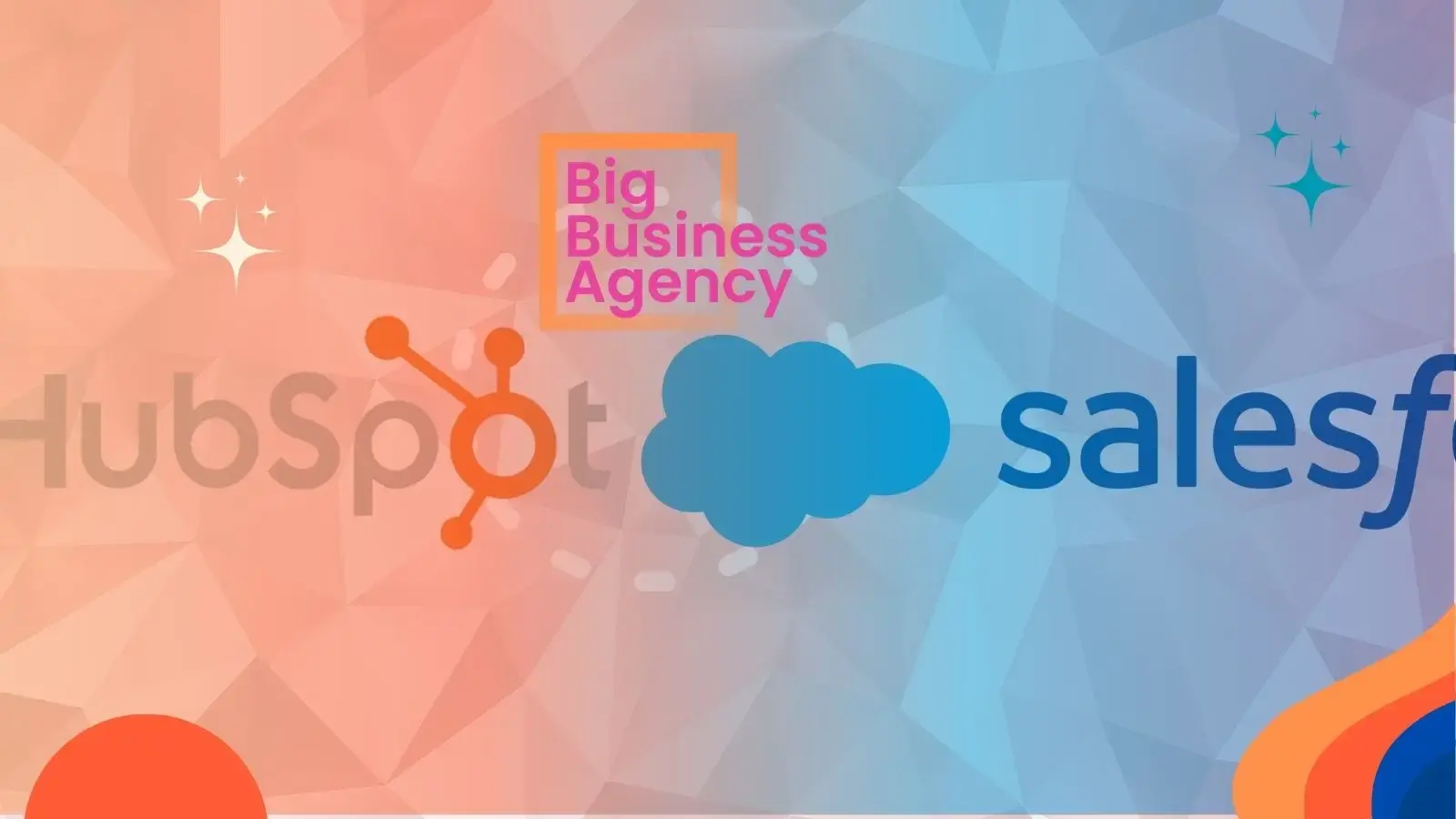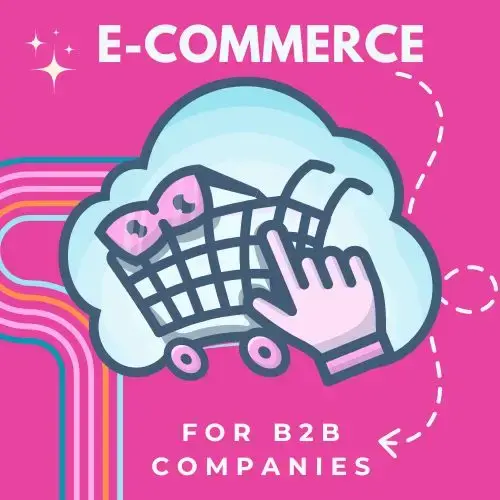Best Salesforce CPQ Alternatives in 2025
Is Salesforce CPQ disappearing? If you’re a business still relying on it - or thinking about starting - you might want to hit pause. Salesforce is...

HubSpot and Salesforce are like the dynamic duo of sales and marketing CRMs.
How on earth do you choose between the leaders of both categories?
 Salesforce brings the big guns with its sophisticated tools, designed with the large enterprise in mind.
Salesforce brings the big guns with its sophisticated tools, designed with the large enterprise in mind.
It's no surprise that Salesforce is often referred to as "a hammer to crack a nut" when it comes to mid-sized businesses. However, all this power is well and good, but it comes at a price - a high price tag and a steep learning curve that could rival climbing Mount Everest!!
On the other hand, HubSpot is a friendly neighbour, easy to use, budget-friendly and pretty powerful, with a ton of features to rival its competitors.
HubSpot offers a free plan for all your basic CRM needs, unlike Salesforce, which does not offer free plans.
You can get your hands on the Salesforce platform with a 30-day free trial, while HubSpot offers a 14-day free trial for its paid plans.
Both platforms bring the heat with essential CRM functionalities like sales forecasting, email marketing, and contact and lead management.
![]()
HubSpot has taken top place in the G2 awards for the past few years, knocking Salesforce from the top spot.
If you're a small or midsize divisional business looking for an easy-to-use CRM that focuses on aligning sales, marketing, and service on one platform, HubSpot is certainly the way to go.
The best part? HubSpot offers a user-friendly interface that's perfect for those with limited access to technical resources, such as overworked IT Departments. It simplifies and streamlines tasks with sequences and workflows, making it accessible for teams without specialised training. This is especially beneficial for businesses that prioritise sales and marketing, as it provides a range of tools in these areas.
HubSpot's ease of use on a single platform makes it a better choice than Salesforce. These features allow businesses to manage customer relationships effectively without requiring extensive resources or technical expertise.
HubSpot streamlines workflows with its flexible automation capabilities and an intuitive visual editor for custom workflows, enabling the creation of sales and service processes without the need for extensive technical knowledge.

With a minimal and straightforward interface, HubSpot meets the needs of businesses looking for an easy-to-navigate CRM tool without the extensive training that Salesforce may demand. HubSpot's foundation as a single platform aligns well with the primary focus of many businesses. In comparison, Salesforce, with its extensive customisation and scalability, may be more sophisticated than what is needed.
72% of Sales Hub Professional and 84% of Enterprise customers display high Sales Hub feature usage
![]() Salesforce is well-suited for large enterprises or businesses with intricate CRM needs, especially those in search of sophisticated integration with mission-critical systems like provisioning, manufacturing, and demand planning, with extensive customisation and a comprehensive range of features. In contrast to HubSpot, which caters more towards small and medium-sized businesses with its user-friendly interface and integrated marketing tools, Salesforce offers a robust, feature-rich platform capable of handling a diverse array of business processes and requirements.
Salesforce is well-suited for large enterprises or businesses with intricate CRM needs, especially those in search of sophisticated integration with mission-critical systems like provisioning, manufacturing, and demand planning, with extensive customisation and a comprehensive range of features. In contrast to HubSpot, which caters more towards small and medium-sized businesses with its user-friendly interface and integrated marketing tools, Salesforce offers a robust, feature-rich platform capable of handling a diverse array of business processes and requirements.
It should be noted that HubSpot is increasingly evolving into a more robust enterprise solution with impressive developments this year in customer-sensitive data and HIPAA compliance.
Salesforce boasts impressive analytics and reporting capabilities, making it a valuable asset for businesses looking to delve deep into their data to steer decision-making. The reporting is notoriously difficult to configure, and Salesforce specialists are required to tailor all custom reports.
HubSpot began as a nifty marketing tool that blossomed into a full-fledged CRM, whereas Salesforce initially focused on CRM and later expanded to include sales and marketing features.
Today, HubSpot remains the go-to for agility, while Salesforce is hailed for its sales automation prowess. Despite their origins, both platforms offer a similar array of features:
|
|
HubSpot |
Salesforce |
|---|---|---|
|
Sales reporting & forecasting |
⭐⭐⭐⭐ Advanced sales reporting and forecasting, but requires an upgraded paid plan |
⭐⭐⭐⭐⭐ Highly advanced sales reporting and forecasting, with basic reporting available in baseline plans |
|
Marketing features |
⭐⭐⭐⭐⭐ Extensive marketing features available with the free and Starter plans |
⭐⭐⭐⭐ Extensive marketing automation features available in separate marketing packages |
|
Ease of use |
⭐⭐⭐⭐⭐ Strong onboarding with step-by-step guidance; more integrated dashboard and navigation |
⭐⭐⭐ Strong onboarding with a demo-like account; layout is initially less intuitive |
|
Customisation |
⭐⭐⭐⭐ Customisable workflows and automation, including JavaScript and Python coding for workflows |
⭐⭐⭐⭐ Highly customisable (including coding capabilities) |
|
Pricing |
⭐⭐⭐⭐ Extensive free plan, including a free CRM and baseline features; plans include specific product bundles; pricing packages can be customised and scaled by user: Free, Starter ($20/month), Professional ($500/month), Enterprise ($1,500/month) |
⭐⭐⭐⭐ Charges per user per month; many features come as standalone apps accessible by purchase; plans are highly segmented; similar functionality can be much more expensive: Essentials ($25/user/month), Professional ($80/user/month), Enterprise ($165/user/month), Unlimited ($330/user/month), Unlimited+ ($500/user/month) |
|
AI features |
⭐⭐⭐⭐⭐ Very well-integrated AI features even at lower pricing tiers, including generative AI, predictive analytics, and smart suggestions |
⭐⭐⭐⭐ AI functionality comes from the proprietary Einstein application, which offers generative tools, workflow automation, predictive analytics, and smart insights; isn't as conveniently integrated; scales features by plan |
When deciding between HubSpot and Salesforce, numerous feature/function comparisons are available to help you understand the differences.
While all these features and functions are informative, they really don’t complete the comparison because the core of the decision rests on the nature of your business.
Let's face it: history matters. A company’s heritage can be very useful in informing you when you make this critical decision.
If you’re in an IP-based business, like TIC, Professional Services or Technology, or a manufacturing business and your turnover is less than 100m you should choose Hubspot and here’s why....
 Salesforce is a platform on which over 4,000 applications have been written. It was born in the era of large centralised systems like SAP and offered what was then a unique value proposition, effectively creating SAAS as an accepted platform.
Salesforce is a platform on which over 4,000 applications have been written. It was born in the era of large centralised systems like SAP and offered what was then a unique value proposition, effectively creating SAAS as an accepted platform.
Back in the day when I was a Director at PwC, we had (just like Accenture) thousands of skilled Salesforce consultants. We had them because Salesforce implementations are complex and resource-heavy, resulting in the billing of huge amounts of time to projects.
This leads to an indefinite over-reliance on external experts.
Which is what is needed if you’re Fortune 500, complex, global and multi-divisional.
If your business moves physical goods, such as manufacturing or distribution, chances are you have a fairly sophisticated billing and inventory requirement being serviced by an ERP. If that ERP is SAP then chances are, on balance, your scale and complexity could well benefit from the sophistication of Salesforce.
If not, HubSpot’s Marketing Hub, Sales Hub, and Service Hub are easy to implement CRM solutions.
Download your complimentary copy now
Both Salesforce and HubSpot are excellent CRM options, each with its own advantages and drawbacks.
For instance, Salesforce offers various advanced features and in-depth sales forecasting and analysis tools.
However, it can be more challenging to navigate than HubSpot and more costly and time-intensive to implement.
Any changes or customisations required will involve engaging the assistance of Salesforce consultants, adding to the overall expense and effort required.
It's worth noting that Salesforce Reporting is especially cumbersome. Getting what you actually need from a Salesforce report is notoriously difficult and expensive.
While HubSpot is user-friendly, quicker to implement and less costly than Salesforce, it may not suit very large enterprises with high numbers of users for instance,>50k due to the analytics these types of organisations typically require
If your business involves managing sales and prospects, you need a CRM.
If your business has a strong customer support requirement, a CRM with the option to include help desk and customer success teams such as HubSpot Service Hub is ideal.
A CRM will assist in tracking sales prospects, nurturing personal connections with your customers and offering valuable data-driven insights that would otherwise be overlooked without the use of a CRM.
HubSpot has a natively integrated B2B eCommerce solution for contracted and non-contracted B2B customers.
It handles complex CPQ and allows customers to self-serve in their portal. All transactions are visible across sales, marketing and customer services.
Both CRMs offer advanced plans with different levels and add-on services. Depending on which levels you go for they can get pricey but HubSpot tends to be a lower cost than Salesforce across the board.
When considering implementation services, it's important to note that both companies follow a partner model. In both cases partners deliver the majority of the services.
It's worth mentioning that Salesforce's implementation (or onboarding) tends to come at a higher price point compared to HubSpot.
Top 10 Sales Metrics to Track in HubSpot
How to Avoid a Failed CRM projects
How can a CRM help my business?

Is Salesforce CPQ disappearing? If you’re a business still relying on it - or thinking about starting - you might want to hit pause. Salesforce is...

McKinsey tells us many companies aren't yet reaping the benefits of technology and CRMs aren't just for giant companies with the resources to scrub...

Digitising B2B contracted customers with an easy-to-use integrated eCommerce CRM can transform your business with simplified operations. Imagine one...